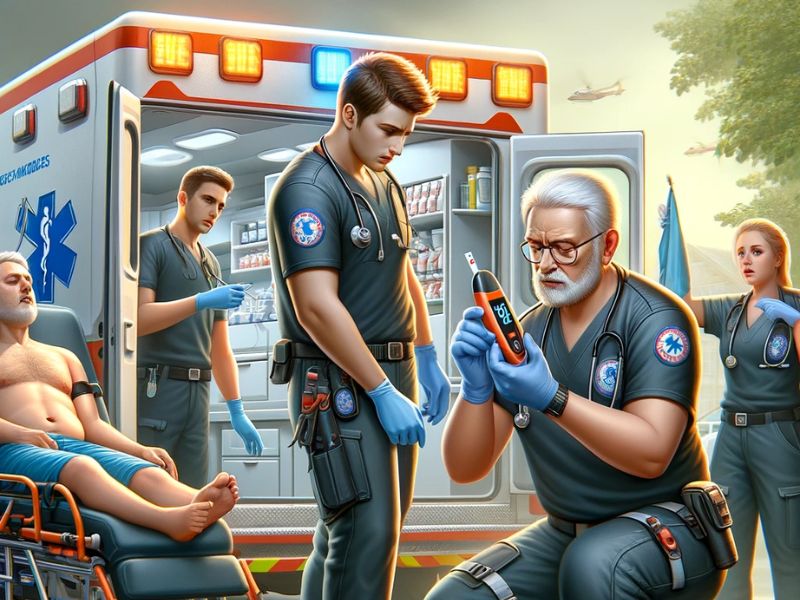
Battling Diabetes on the Frontline: Innovative Interventions in Emergency and Rescue Services
Cutting-edge strategies for diabetic patient care in emergency situations
Diabetes, a chronic disease affecting millions worldwide, poses a significant challenge for emergency services. Managing diabetes in emergency situations requires specific knowledge and effective strategies to ensure timely and adequate treatment for diabetic patients, who may face acute complications like hypoglycemia or hyperglycemia under critical conditions.
Identification and Management of Diabetic Emergencies
Common diabetic emergencies include hypoglycemia (low blood sugar) and hyperglycemia (high blood sugar), which can lead to more severe conditions like diabetic coma. First responders must be able to quickly recognize these signs and provide appropriate treatment, varying from glucose administrations to more complex treatments.
Training and Preparation of Personnel
Proper training of emergency personnel is crucial for an effective response to diabetic emergencies. This includes education on recognizing and treating hypoglycemia and hyperglycemia, as well as strategies for managing diabetic patients in emergency situations, including education on insulin and other antidiabetic medications.
Technology and Innovation in Diabetes Management
The advent of new technologies has significantly improved the management of diabetes in emergency situations. Portable glucometers, insulin pumps, and Continuous Glucose Monitoring (CGM) systems are essential tools that help first responders quickly monitor and adjust patients’ blood sugar levels.
Collaboration between Emergency Services and Diabetes Specialists
Collaboration between emergency services and diabetes specialists is key to ensuring optimal management of diabetic emergencies. This collaboration can include sharing treatment protocols, access to real-time specialist consultations, and joint training.
Psychosocial Impact of Diabetes in Emergencies
Diabetic emergencies affect not only physical health but also have a significant psychosocial impact on patients. Fear, anxiety, and stress can exacerbate diabetic conditions, making a holistic approach that considers both physical and emotional aspects essential in emergency management.
Conclusion and Future Reflections
Effective management of diabetic emergencies requires an integrated approach combining specialist training, advanced technology, and close collaboration between various health professionals. Investing in these areas is crucial to improving care and outcomes for diabetic patients in emergency situations.


